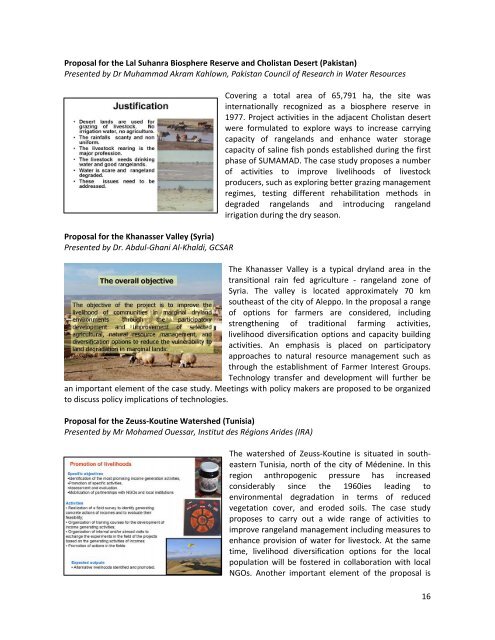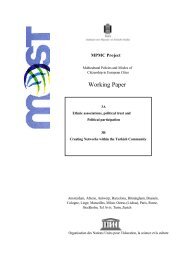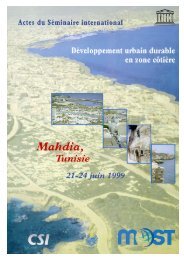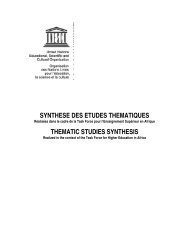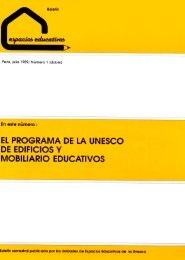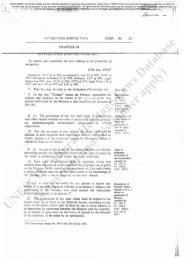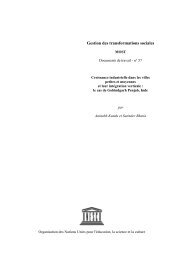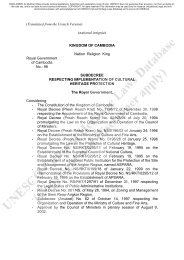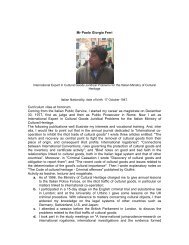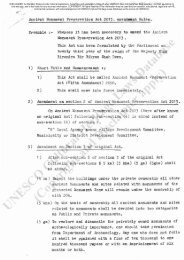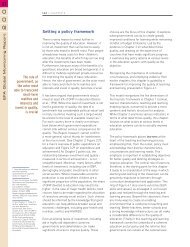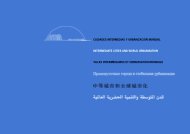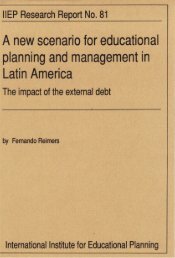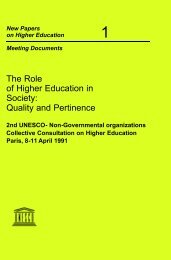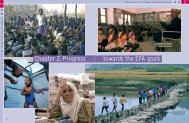Planning Workshop –Sustainable Management of Marginal - Unesco
Planning Workshop –Sustainable Management of Marginal - Unesco
Planning Workshop –Sustainable Management of Marginal - Unesco
Create successful ePaper yourself
Turn your PDF publications into a flip-book with our unique Google optimized e-Paper software.
Proposal for the Lal Suhanra Biosphere Reserve and Cholistan Desert (Pakistan)<br />
Presented by Dr Muhammad Akram Kahlown, Pakistan Council <strong>of</strong> Research in Water Resources<br />
Proposal for the Khanasser Valley (Syria)<br />
Presented by Dr. Abdul‐Ghani Al‐Khaldi, GCSAR<br />
Covering a total area <strong>of</strong> 65,791 ha, the site was<br />
internationally recognized as a biosphere reserve in<br />
1977. Project activities in the adjacent Cholistan desert<br />
were formulated to explore ways to increase carrying<br />
capacity <strong>of</strong> rangelands and enhance water storage<br />
capacity <strong>of</strong> saline fish ponds established during the first<br />
phase <strong>of</strong> SUMAMAD. The case study proposes a number<br />
<strong>of</strong> activities to improve livelihoods <strong>of</strong> livestock<br />
producers, such as exploring better grazing management<br />
regimes, testing different rehabilitation methods in<br />
degraded rangelands and introducing rangeland<br />
irrigation during the dry season.<br />
The Khanasser Valley is a typical dryland area in the<br />
transitional rain fed agriculture ‐ rangeland zone <strong>of</strong><br />
Syria. The valley is located approximately 70 km<br />
southeast <strong>of</strong> the city <strong>of</strong> Aleppo. In the proposal a range<br />
<strong>of</strong> options for farmers are considered, including<br />
strengthening <strong>of</strong> traditional farming activities,<br />
livelihood diversification options and capacity building<br />
activities. An emphasis is placed on participatory<br />
approaches to natural resource management such as<br />
through the establishment <strong>of</strong> Farmer Interest Groups.<br />
Technology transfer and development will further be<br />
an important element <strong>of</strong> the case study. Meetings with policy makers are proposed to be organized<br />
to discuss policy implications <strong>of</strong> technologies.<br />
Proposal for the Zeuss‐Koutine Watershed (Tunisia)<br />
Presented by Mr Mohamed Ouessar, Institut des Régions Arides (IRA)<br />
The watershed <strong>of</strong> Zeuss‐Koutine is situated in south‐<br />
eastern Tunisia, north <strong>of</strong> the city <strong>of</strong> Médenine. In this<br />
region anthropogenic pressure has increased<br />
considerably since the 1960ies leading to<br />
environmental degradation in terms <strong>of</strong> reduced<br />
vegetation cover, and eroded soils. The case study<br />
proposes to carry out a wide range <strong>of</strong> activities to<br />
improve rangeland management including measures to<br />
enhance provision <strong>of</strong> water for livestock. At the same<br />
time, livelihood diversification options for the local<br />
population will be fostered in collaboration with local<br />
NGOs. Another important element <strong>of</strong> the proposal is<br />
16


